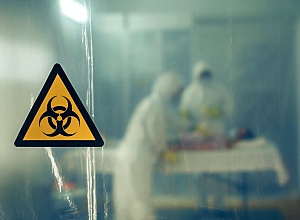The purpose of a Public Health Emergency of International Concern (PHEIC) declaration is timely evidence-based action to limit emerging disease risks, write David Durrheim, Laurence Gostin and Keymanthri Moodley in The Lancet. Yet the process often appears to be "more political than technical".
They write:
Could the pandemic of the century have been averted? The process by which World Health Organisation (WHO) decides whether to declare a Public Health Emergency of International Concern (PHEIC) under the International Health Regulations has drawn criticism. Reports have condemned the 4-month delay by WHO after the international spread of Ebola in west Africa before declaring a PHEIC.
The Democratic Republic of the Congo, now experiencing the second largest Ebola outbreak in recorded history, notified WHO of the outbreak on 1 August, 2018, but WHO required four Emergency Committee meetings, including on 17 October, 2018 (216 confirmed cases, 139 deaths, and 64% case fatality ratio), and 12 April and 14 June, 2019 (four confirmed cases in Uganda). Justifying their response, the Emergency Committee said that “the cluster of cases in Uganda is not unexpected”.
A PHEIC was finally declared at the fourth Emergency Committee meeting on July 17, 2019 (2501 cases and 1668 deaths), almost a year after initial notification. The International Health Regulations3 do not require actual international spread, only a high potential for that spread, and thus the criteria for a PHEIC had already been met by the second Emergency Committee meeting.4 Notably, the PHEIC declaration coincided with increased resourcing and international focus, leading to a major reduction in Ebola cases.
Global health scholars have criticised the Emergency Committee process as lacking transparency, using “irrelevant considerations, undue influence and political interference”, and delaying declaration when International Health Regulations criteria have been met. The coronavirus disease 2019 (COVID-19) outbreak originating in China and reported to WHO on Dec 31, 2019, suggests that little has changed.
The PHEIC declaration for COVID-19 occurred well after most public health experts had concluded that this outbreak posed a major international threat. At the first Emergency Committee meeting on 22 January, 2020 (309 cases and six deaths reported in mainland China; five confirmed cases in four countries or territories), the Emergency Committee said it did not have key facts from China. It extended the meeting to the next day, when cases had risen to 571, with 17 deaths and ten cases in seven other countries or territories.
Yet, the Emergency Committee could not achieve consensus, and the director-general concluded that the outbreak was “an emergency in China, but it had not yet become a global health emergency”.
Again, the process appeared “more political than technical”, as a Lancet Editorial described Ebola in the Democratic Republic of Congo, adding that “the committee seems to have favoured local protectiveness over global galvanising”.
By the time the Emergency Committee declared a PHEIC for COVID-19 on 30 January, 2020, 7736 cases and 179 deaths had been confirmed in mainland China, with 107 cases confirmed in 21 other countries. Delays in declaring a PHEIC could have serious detrimental consequences, lulling governments and donors into a false sense of security, because they could reason that if WHO does not consider the situation an international emergency, then it does not require a surge response.
The PHEIC process requires urgent reform.
[link url="https://www.thelancet.com/pdfs/journals/laninf/PIIS1473-3099%2820%2930401-1.pdf"]Full comment in The Lancet[/link]

